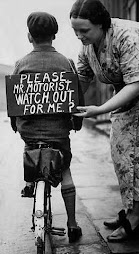Join the conversation on our Healthy Memphis Blog at commercialappeal-web.com /health. Look for Anthony Siracusa's latest post on the blog and add your thoughts.
--------------------
In early June, Tennessee passed a law requiring motorists to pass bicycles with at least a 3-foot berth. The law reflects the increased value local governments are placing on bicycle-friendly communities. It is a perk for both motorists and cyclists, as increased bicycle use translates to safer and more desirable cities.
We've joined cities and states worldwide in thinking about bicycles as an asset.
Still, some Memphians were less than enthusiastic about the legislation. A letter to the editor on June 9th said that bicycles, like golf carts or mini-bikes, should be restricted from roadways and viewed as toys.
But unlike motorbikes or golf carts, bicycles are human-powered vehicles with the carrying capacity of a small coupe (just add a trailer). They require no petroleum and run on calories.
Unlike most toys, the bicycle is a source of transportation for a future beset by skyrocketing petroleum prices and transportation dilemmas. For good reason, bicycles have a staying power beyond the Barbie doll.
Bicycles are indicators that communities have become people-friendly environments supporting a healthy lifestyle.
For example, Boulder, Colo., is America's most bicycle-friendly city. It spends 15 percent of its transportation budget on bicycles and has created bicycle lanes on more than 97 percent of its arterial roads. Twenty-one percent of the population commutes by bicycle.
In 2003, Boulder recorded no murders. That peaceful, bicycle-friendly city stands in contrast to a June 6 letter to The Commercial Appeal. The writer cast cyclists as troublemakers tearing through neighborhoods. In fact, cyclists lend a peaceful aesthetic to neighborhoods, often getting smiles and waves from those they pass.
I spoke recently with a colleague about bicycling in Memphis. "I'm a cyclist, too" he said, "but not like you." His point was that he refused to navigate the high-traffic streets of North Parkway or even Cooper on a bicycle. It's understandable.
Memphis does not have a single bicycle lane. This keeps many cyclists off the streets. But all over America, recreational bicycling is gaining in popularity.
The specter of global warming and the steady rise of gas prices have inevitably urged Americans to consider going by bike.
In Memphis, even without bike lanes, we are seeing more and more bicycles in the roadway. And this is a good thing, as are laws which protect cyclists. Such laws are direct investments in the health and safety of our cities.
The latest cycling law says that our state values its people and their health. Protecting cyclists is an indication that our streets are being reclaimed for a healthier way of life.
Memphian Anthony Siracusa is a full-time student at Rhodes College. He is a member of Memphis' Bicycle Pedestrian Advisory Committee, executive director of Revolutions Community Bicycle Shop and a daily cycling commuter. Contact him at revolutionsmemphis.com.










1 comment:
i live just across the river in arkansas... we have the same law - it is not, unfortunately, enforced... though i am very quick to remind motorists who pass me to closely that there is a law... i have even called police a couple of times when it was a really close call... to no avail. what i don't understand is why a minute or two of lost time is more important than a human life
Post a Comment